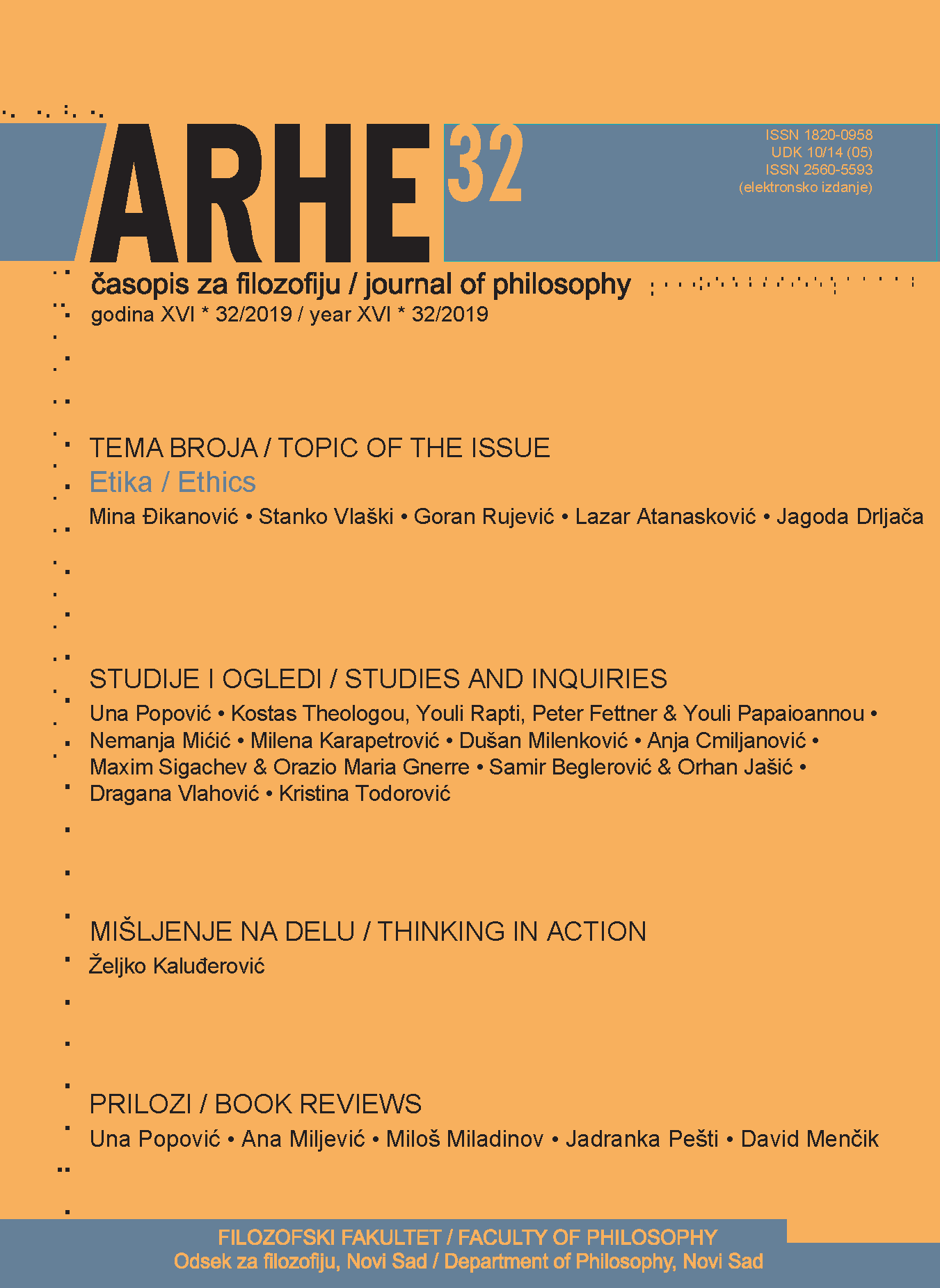VACUOUSLY UNNATURAL
Main Article Content
Abstract
The argument of unnaturalness is used to justify the attribution of a (usually) negative value to things or actions by deeming them unnatural. This argument is found applied to various topics, from the purportedly unnatural genetically modified organisms to the purportedly unnatural homosexual relations. Whenever something is dubedd as unnatural, it is thought of as either something artificial, or something disharmonious, or something that goes against the natural purposes. By analyzing all these instances, we arrive at the conclusion that the term unnatural is never used in a sensical and reasonable manner. Artificial cannot be unnatural, as even artificial things must obey natural laws. Disharmonious is also a poor opposite of natural, as the very postulate of nature being harmonious is an unwarranted supposition. Violation of natural purposes is a particularly egregious interpetation of unnaturalness, as it masks ulterior motives and interests in the guise of objective propositions. The only sensical opposite of the notion of the natural is that of the supernatural, which in itself has no place in evaluating real things and events.
Article Details
References
Dušan Maljković, „Čudovišnost transmaterinstva” u: Postajanje majkom (ur. Ana Vilenica), u)zbu))na))), Beograd, 2013, str. 200-216.
Džon Stjuart Mil, Prirodno i neprirodno, Karpos, Loznica, 2008.
Frank L. Lambert, „A Modern View of Entropy” u: Chemistry, Vol. 15, Iss. 1. (2006), str. 13-21.
Immanuel Kant, „Geschichte und Naturbeschreibung der merkwürdigsten Vorfälle des Erdbebens” u: Immanuel Kant’s kleinere Schriften zur Naturphilosophie. Zweite Abtheilung (Hg. J. H. Kirchmann), L. Heimann’s Verlag, Berlin, 1783, str. 333-372.
Isaiah Berlin, Political Ideas in the Romantic Age, Princeton University Press, Princeton, 2006.
Monteskje, O duhu zakona, Gradac, Čačak, 2001.
Nihal Petek Boyaci Gülenç, „An Enquiry on Physis-Nomos Debate: Sophists” u: Synthesis Philosophica 61 (1/2016), str. 39-53.
Paul L. Vasey, „Homosexual Behaviour in Primates: A Review of Evidence and Theory” u: International Journal of Primatology, Vol. 16, Iss. 2. (1995), str. 173-204.
